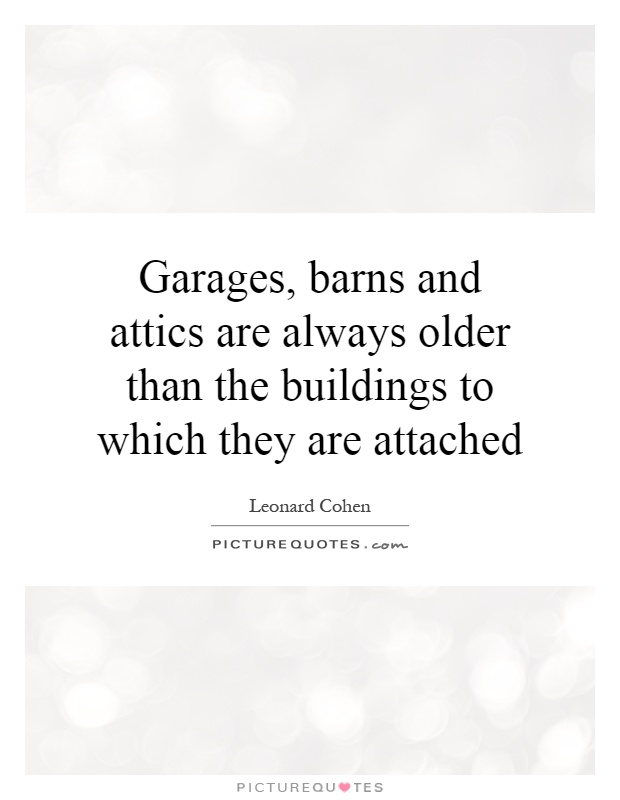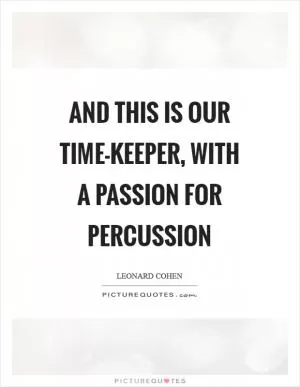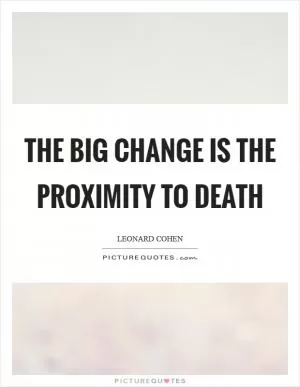Garages, barns and attics are always older than the buildings to which they are attached

Garages, barns and attics are always older than the buildings to which they are attached
Leonard Cohen, the legendary singer-songwriter and poet, was known for his introspective and haunting lyrics that delved into the complexities of love, loss, and the human experience. His music often explored themes of nostalgia, memory, and the passage of time, making the statement "Garages, barns and attics are always older than the buildings to which they are attached" particularly poignant in the context of his work.Cohen's songs often contained references to physical spaces, such as houses, rooms, and landscapes, that served as metaphors for the inner landscapes of the human soul. In this sense, garages, barns, and attics can be seen as symbolic spaces that hold the memories, secrets, and forgotten treasures of the past. These spaces are often neglected or overlooked, much like the hidden depths of the human psyche that Cohen so eloquently explored in his music.
The idea that garages, barns, and attics are always older than the buildings to which they are attached speaks to the idea of hidden histories and untold stories that lie beneath the surface of our everyday lives. In Cohen's music, these hidden spaces are often where the most profound truths are revealed, where the ghosts of the past linger and the echoes of lost love and longing can still be heard.
Cohen himself was a master of mining these hidden depths, drawing inspiration from his own experiences of love, loss, and longing to create music that resonated with audiences around the world. His songs are filled with images of old houses, dusty attics, and forgotten memories, all of which serve as reminders of the passage of time and the inevitability of change.












 Friendship Quotes
Friendship Quotes Love Quotes
Love Quotes Life Quotes
Life Quotes Funny Quotes
Funny Quotes Motivational Quotes
Motivational Quotes Inspirational Quotes
Inspirational Quotes